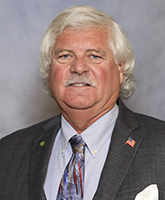
As safety professionals, we may sometimes find ourselves in potentially compromising situations where we are asked to overlook a hazard, cut a corner or not report an incident. These pressures can be the result of various factors, from scheduling issues to concerns about losing economic incentives. Current events related to the pandemic response provide more potential cases in point. For example, could we be asked to falsify documents related to COVID-19 vaccination and testing?
As safety professionals, we must be prepared to respond to these types of ethical dilemmas. As fellow ASSP board member Dan Snyder wrote in the chapter on ethics in ASSP’s Consultants Business Development Guide, “Ethical reflection creates an immediate benefit for the individual who, through reflection, can discover other possibilities of being and behaving.”
One resource is ASSP’s Code of Professional Conduct. Please visit https://assp.us/codeofconduct to review our code and reflect on how you incorporate these principles into your daily practice and what other steps you might consider. Organizations such as BCSP, AIHA, American Board of Industrial Hygiene and National Society of Professional Engineers also have formal codes of ethics that guide professionals in safety and related fields to act according to the highest standards of honesty and integrity.
Beyond these guidelines, each of us must have a personal code of ethics. For me, Cowboy Ethics by James Owen has been a go-to resource throughout my career. He outlines 10 principles that I have used to guide my daily interactions and decision-making:
1. Live each day with courage.
2. Take pride in your work.
3. Consistently finish what you start.
4. Do what has to be done.
5. Be tough, but fair.
6. When you make a promise, keep it.
7. Ride for the brand.
8. Talk less and say more.
9. Remember some things are not for sale.
10. Know where to draw the line.
In applying your personal code of ethics, it is important to remember that ethics involve more than simply delineating right from wrong. “The avoidance of wrong is not the same as doing right. . . . You must not only behave ethically, but you must also strive to encourage ethical behavior in others,” Snyder explains.
This is where having access to the professional community through ASSP plays a key role. We need to openly discuss these issues and seek input from others. “It helps to seek the advice of colleagues,” Snyder says. “Ask what a reasonable peer would do in the same situation.”
I often say that safety is a people profession. We want to help workers feel safe, contribute to organizational goals and return home healthy at the end of the workday. In our roles, we often interact more, and more frequently, with employees across any given work site. This provides a unique opportunity to build trusting relationships based on credibility that extends beyond our technical expertise.
Many workers view us as intermediaries with management, a sort of honest broker. They want to know that when they share concerns, we will listen, communicate and take action with honesty, empathy, respect and courage. They want confidence that we will make ethical decisions that fully consider their well-being as well as business needs.
As ASSP Fellow Skipper Kendrick noted in response to a recent LinkedIn post about ethics, “We inherit a ‘trust’ account when we enter the safety profession. Ethical actions and decision-making are critical to making deposits in this trust account,” he wrote. “Even one withdrawal due to unethical decisions and actions can bring our trust balance to zero . . . and make it difficult to open another account.”
Each of us will likely encounter challenges at work that make us feel at times we are “operating in the gray.” Ethics is a critical value for our profession and should define who we are and guide what we do. As you look ahead to your work in 2022, I encourage you to ask yourself, “Do my actions align with my core values and the values of my chosen profession?”